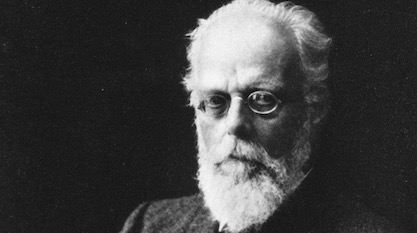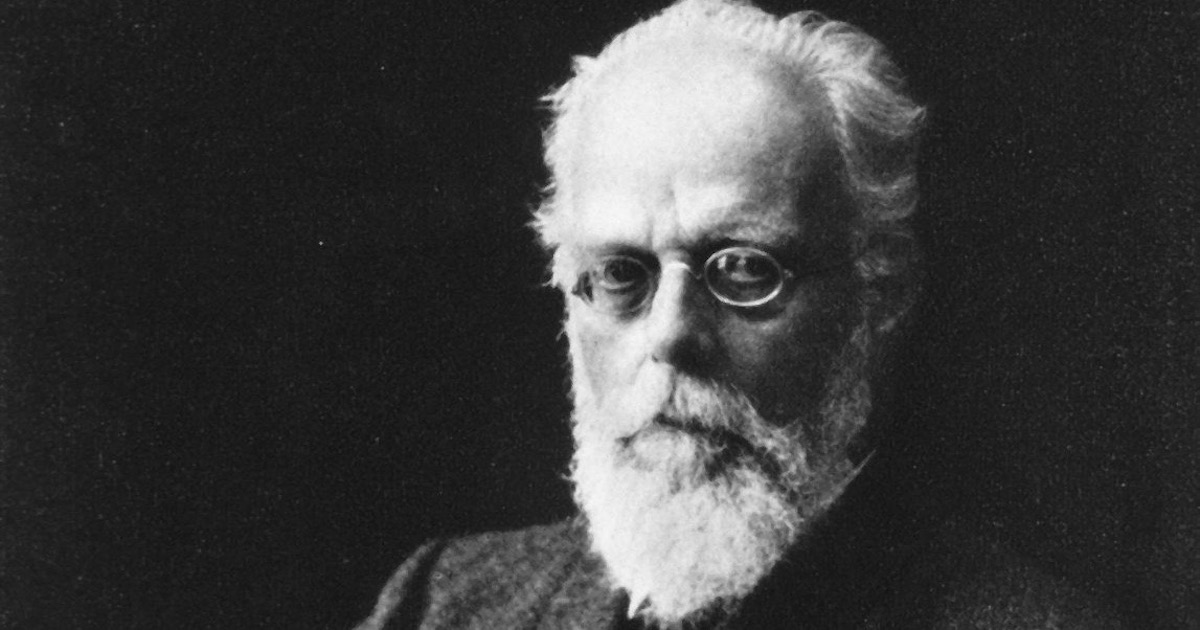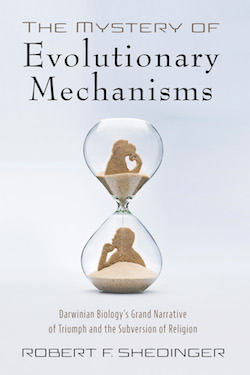 Evolution
Evolution
The Ideological Nature of Darwinian Evolution


Editor’s note: Dr. Shedinger is a Professor of Religion at Luther College in Decorah, Iowa. He is the author of a new book critiquing Darwinian triumphalism, The Mystery of Evolutionary Mechanisms: Darwinian Biology’s Grand Narrative of Triumph and the Subversion of Religion, from which this post is adapted.
As have I noted in previous posts (here and here), agreeing to teach a course on science and religion provided an occasion for me to immerse myself in the literature of evolutionary biology. Up until that point, I had fully accepted the truth of Darwinian evolution. Now, however, I was shocked to learn how easy it was for a humanities scholar like myself to deconstruct this literature. The evidence of Darwinian ideology was not subtle, but instead jumped off the pages as I read.
In this post I will share a few examples. Many more can be found in The Mystery of Evolutionary Mechanisms.
“Quite Other Grounds”

It is well known that August Weismann became one of the strongest early supporters of Darwin, viewing natural selection as the sole mechanism of evolutionary change (against Darwin who retained a role for Lamarckian mechanisms). But what led to Weismann’s support of natural selection? In an article published in a 1909 anthology marking the 50th anniversary of the Origin of Species, Weismann surprisingly states that his support for natural selection is not based on evidence but on what he calls “quite other grounds.” Later in the essay, these “quite other grounds” become apparent. As Weismann writes, “We must accept it (natural selection) because the phenomena of evolution and adaptation must have a natural basis.” But Weismann freely admits that he cannot bring forth a formal proof of it or calculate the size of variations and their selection-value. He has clearly assumed natural selection for ideological reasons. Evolution must have a naturalistic basis.
A similar argument appears in Ronald Fisher’s seminal The Genetical Theory of Natural Selection (1930). In this technical monograph, Fisher argues that once we clear away evolutionary theories that rely on hypothetical mechanisms to control the occurrence of mutations or that direct the course of evolution, “The sole surviving theory is that of natural selection and it would appear impossible to avoid the conclusion that if any evolutionary phenomenon appears to be inexplicable on this theory it must be accepted at present merely as one of the facts which in the present state of knowledge seems inexplicable.”
So natural selection wins by default, and the theory is essentially unfalsifiable since no contrary evidence can be understood as challenging it. Unfortunately, scientific theories are not established by default, but by positive evidence in their favor. And this Fisher did not have any more than did Weismann before him.
Ideological Boundary Markers
The nature of Darwinism manifests itself also in the prevalence of “religious” terms like orthodoxy, heresy, blasphemy, and dogma in the scientific literature. Terms like orthodoxy and heresy developed in the early centuries of Christianity as church communities harboring differing views about the nature of Jesus sorted themselves out. The beliefs adopted by one group came to be known as orthodox in that group while differing ideas were branded as heresy. Even as late as the Reformation, Martin Luther’s views could be branded as heretical by the Roman Catholic Church while becoming orthodox for millions of Lutherans. These terms became ideological boundary markers. So it is very telling when they turn up in “scientific” literature.
For example, in 1988 John Cairns, Julia Overbaugh, and Stephen Miller, researchers at the Harvard School of Public Health, published a paper purporting to demonstrate directed mutation. Not long after, Barry Hall published two papers purporting to show anticipated mutagenesis. The random nature of mutation is a bedrock of Darwinian theory, supposedly proven in 1943 by Salvador Luria and Max Delbrück in their famous fluctuation test. Here it was being challenged by respected members of the biological establishment. This could not be permitted.
In response British geneticist Neville Symonds, referring to Hall’s results, wrote, “an explanation based on orthodoxy is that physiological conditions in old colonies induce a burst of random transposition activity…” In response to Cairns’s work, Symonds commented, “On the face of it, this was blatant heresy — how can an organism sense its needs in a particular environment and then mutate accordingly?” Symonds describes the biological establishment as viewing Lamarckism as blasphemy. Richard Lenski, for his part, accuses Cairns of laying the groundwork for a harmful Lamarckism to be let back into biology. But an idea is only harmful to those who are ideologically bent against it. Scientists should be open to the pursuit of truth wherever it leads.
Orthodoxy and Heresy
In summarizing the kinds of evidence that would be necessary to establish directed mutation, Lenski concludes, “When such evidence has been gathered, we will know whether (and how greatly) we must alter current dogmas of molecular and population genetics.” More recently, Charles Baer, writing in the Princeton Guide to Evolution (2014), could say in response to the possibility of directed mutation that it remains unclear whether bacteria are responding to a challenge with some intentionality or whether stress-induced increases in mutation rate are simply the result of a sick organism functioning at a subpar level, but “evolutionary orthodoxy suggests the latter.” And lest we forget, Francis Crick originally pronounced the Central Dogma of molecular biology in 1957, noting that the direct evidence for it was negligible.
Whether assuming the truth of natural selection in the absence of evidence or branding research that challenges Darwinism as heretical, blasphemous, or harmful, evolutionary biologists prove that their primary motivation in rejecting and disparaging contrary ideas is to preserve a certain academic identity and status deemed orthodox by them. But orthodoxy and heresy are not synonyms for true and false, and sometimes the truth might lie with the heretics. Just ask Matti Leisola!
Photo: August Weismann (1915), by Edwin G. Conklin, via Wikimedia Commons.
